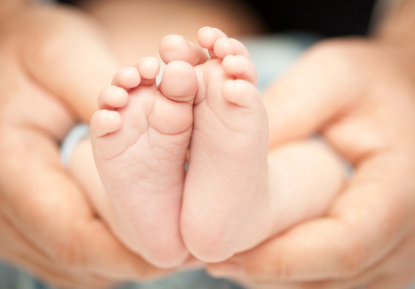Top Class Actions’s website and social media posts use affiliate links. If you make a purchase using such links, we may receive a commission, but it will not result in any additional charges to you. Please review our Affiliate Link Disclosure for more information.

Since August 2013, an Effexor multidistrict litigation (MDL) has been established for all product liability lawsuits filed against Pfizer in U.S. District Courts nationwide. These bellwether cases all claim that while pregnant, a woman took Effexor and eventually gave birth to a child with birth defects.
Effexor Birth Defect Litigation
There are currently at least 68 Effexor lawsuits pending in the MDL, which has been centralized before U.S. District Judge Cynthia Rufe in the Eastern District of Pennsylvania. The purpose of the Effexor MDL is to avoid conflicting pretrial rulings from different judges, increase judicial efficiency in bringing new claims, avoid the delays associated with transferring cases from other districts.
In MDLs, evidence and testimony from very similar lawsuits are combined to streamline the legal system when large numbers of similar lawsuits have been filed. Birth defect lawsuits within the MDL allege that antidepressants like Effexor have been linked to several types of birth defects, including heart, skull, and lung birth defects. This includes cleft lip, cleft palate, heart birth defects, and PPHN.
What is Effexor?
Effexor is an antidepressant drug that is used to treat major depressive disorder, anxiety, and panic disorder. Effexor inhibits the re-uptake of both norepinephrine and serotonin. The U.S. Food and Drug Administration (FDA) approved Effexor for these uses in 1993. However, allegations have since emerged that Pfizer marketed Effexor as safe for pregnant women despite knowledge of increased risks for certain birth defects.
Should Pregnant Women Take Effexor?
The FDA has named Effexor a Pregnancy Category C drug, meaning that it could potentially harm a fetus, particularly when used during the third trimester. By placing Effexor into Category C, the FDA is warning that while the drug has not been tested in humans, animal studies have shown that it presents a risk to a fetus. Category C drugs, like Effexor, can still be administered during pregnancy if the doctor believes that its potential benefits outweigh its risks to the child. The label advises that that woman tell their doctors if they become pregnant or intend on becoming pregnant during treatment.
In 2004, the label for Effexor was updated to advise patients that infants who were exposed to the drug during the third trimester had developed complications which warranted tube feeding, prolonged hospitalization and respiratory support.
Allegedly as a result of inadequate warnings provided to consumers and the medical community, many women have been given the popular antidepressant while pregnant, which may have unknowingly exposed their unborn child to an increased risk of severe and dangerous birth defects, including:
- Abdominal birth defects
- Anal atresia
- Heart defects
- Craniosynostosis
- Pulmonary stenosis
- Limb defects
- Genital defects
The Effexor Birth Defects MDL is In Re: Effexor (Venlafaxine Hydrochloride) Product Liability Litigation, MDL No. 2458, in the U.S. District Court for the Eastern District of Pennsylvania.
Do YOU have a legal claim? Fill out the form on this page now for a free, immediate, and confidential case evaluation. The birth defect attorneys who work with Top Class Actions will contact you if you qualify to let you know if an individual lawsuit or class action lawsuit is best for you. [In general, birth defect lawsuits are filed individually by each plaintiff and are not class actions.] Hurry — statutes of limitations may apply.
ATTORNEY ADVERTISING
Top Class Actions is a Proud Member of the American Bar Association
LEGAL INFORMATION IS NOT LEGAL ADVICE
Top Class Actions Legal Statement
©2008 – 2024 Top Class Actions® LLC
Various Trademarks held by their respective owners
This website is not intended for viewing or usage by European Union citizens.
Get Help – It’s Free
Join a Free Birth Defect Lawsuit Investigation
If you or a loved one took Zoloft, Prozac, Lexapro, Effexor, Celexa, Cymbalta or Depakote during pregnancy and gave birth to a child with a congenital defect, you may have a legal claim against the drug’s manufacturer. Find out if you qualify to pursue compensation for your child’s medical expenses, pain and suffering, and other damages by filling out the form below now.
An attorney will contact you if you qualify to discuss the details of your potential case.
Oops! We could not locate your form.












